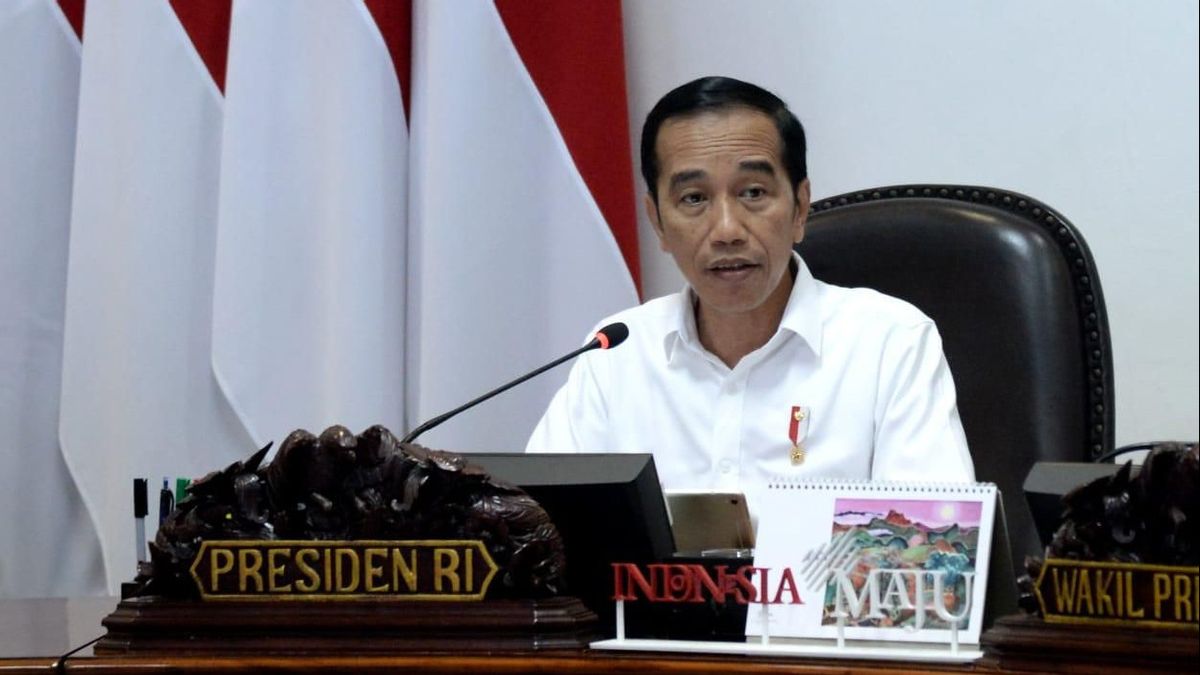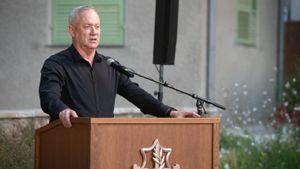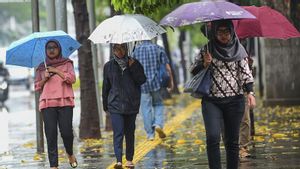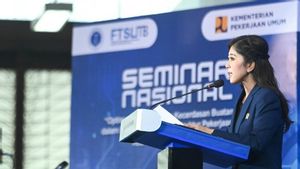JAKARTA - President Joko Widodo has established a Large-Scale Social Restriction (PSBB) policy and a Public Health Emergency status to deal with the spread of COVID-19 in Indonesia instead of adopting a regional quarantine policy. This policy, according to Jokowi, is in accordance with Law Number 6 of 2018 concerning Health Quarantine.
A number of circles think that this policy will not have an impact on reducing the spread of the corona virus in Indonesia. Defny Holidin, a public policy researcher from the University of Indonesia, assessed that there is actually nothing different between the PSBB and the physical distancing appeal previously made by the government.
"So before the determination of the PSBB we all implemented (the recommended social restrictions) on our own initiative, especially those coordinated by the local government," Defny told VOI via text message, Tuesday, March 31.
Rather than the PSBB policy, Defny assessed that the regional quarantine policy was actually more effective in reducing the spread of COVID-19. This is because regional quarantine is considered to be more capable of flattening the curve or reducing the steepness of the increase in the number of corona virus transmissions.
"Judging from experiences in other countries, I see this PSBB only facilitates the slowdown or slowdown of human-to-human transmission of the virus," he explained.
Moreover, this PSBB policy must use other mitigation policies to support existing laws. So it took a long time for the community to carry out independent quarantine recommendations to stop the spread of COVID-19 in an area.
He then explained to us about the difference between the PSBB policy taken by the government and the regional quarantine policy. PSBB, said Defny, was more of a persuasive policy. In addition, by choosing the PSBB policy, the government is not obliged to provide compensation to the community for the economic and social impacts resulting from the implementation of the policy.
"Meanwhile, by regulation, regional quarantine, aka lockdown, will burden the government to reallocate a budget for socio-economic impacts," he explained.
A public policy observer from Trisakti University Trubus Rahadiansyah also assessed that the PSBB policy would not have a major impact on reducing the number of COVID-19 spread in Indonesia.
"The impact is still in doubt. Because the community can still be mobile. So this is more likely the PSBB is tantamount to physical distancing," said Trubus while explaining that the PSBB policy only limits human activities and this is different from the regional quarantine policy that closes access to entry. specific region.
The issue of the difference between regional quarantine and PSBB was also explained by the Civil Society Coalition for Security Sector Reform. Through their release, they explained the comparison between regional quarantine and PSBB based on Law Number 6 of 2018 concerning Health Quarantine.
This comparison is distinguished from five aspects, namely aspects of activities, place, involvement of security forces, responsibility of the central government, and actors.
1. Activities Based on Article 54 Paragraph 3 of Law Number 6 of 2018, if regional quarantine is implemented, the activities carried out by the government are to prohibit quarantined community members from entering and leaving the area.
Whereas in Article 5 Article 59 Paragraph 3 of Law Number 6 of 2018 which regulates Large-Scale Social Restrictions (PSBB), the state will impose school and workplace leisure activities; restrictions on religious activities; and / or restrictions on activities in public places or facilities.
2. Place Based on Article 54 Paragraph 2 of Law Number 6 of 2018, it is stated that the place for area quarantine is carried out to all members of the community in an area if from the results of laboratory confirmation there has been the spread of disease among community members.
As for the PSBB, Article 59 Paragraph 2 of Law Number 6 of 2018 does not specify where it is determined.
3. Involvement of security forces When the area quarantine is carried out, according to Article 54 Paragraph 2 of Law Number 6 of 2018, it is stated that the Police are guarding the area where the regional quarantine takes place. Meanwhile, in the PSBB, the aspect of involving the security forces was not discussed.
The responsibility of the central government In implementing regional quarantine, based on Article 55 Paragraph 1 of Law Number 6 of 2018, it is stated that the basic necessities of life for people and livestock food in the quarantine area are the responsibility of the central government. Meanwhile, the PSBB did not explain the responsibilities of the central government.
5. Actors Article 55 Paragraph 2 of Law Number 16 of 2018 regulates that the actor for regional quarantine is the central government and involves the regions and related parties. As for the PSBB, Article 59 Paragraph 4 of Law Number 6 of 2018 is not specifically explained.

Although it is deemed ineffective in fighting the spread of COVID-19, the government through the Coordinating Minister for Political, Legal and Security Affairs (Menko Polhukam) Mahfud MD assesses that this policy has accommodated input from the public asking for regional quarantine to stop the spread of the virus and make the regions free to do so. movement.
"Those who speak about quarantine, voices about lockdown have all been accommodated there. Local governments are given the freedom to move in this policy but still with a rhythm of cohesiveness with the central government. namely PSBB, "said Mahfud in a video statement released on Tuesday, March 31.
The former Chief Justice of the Constitutional Court (MK) considered that PSBB had also resolved problems related to the spread of COVID-19 because there were already restrictions in it.
"That includes all the ideas for solving various problems, limiting the movement of people and goods from one place to another using that mechanism."
The English, Chinese, Japanese, Arabic, and French versions are automatically generated by the AI. So there may still be inaccuracies in translating, please always see Indonesian as our main language. (system supported by DigitalSiber.id)









